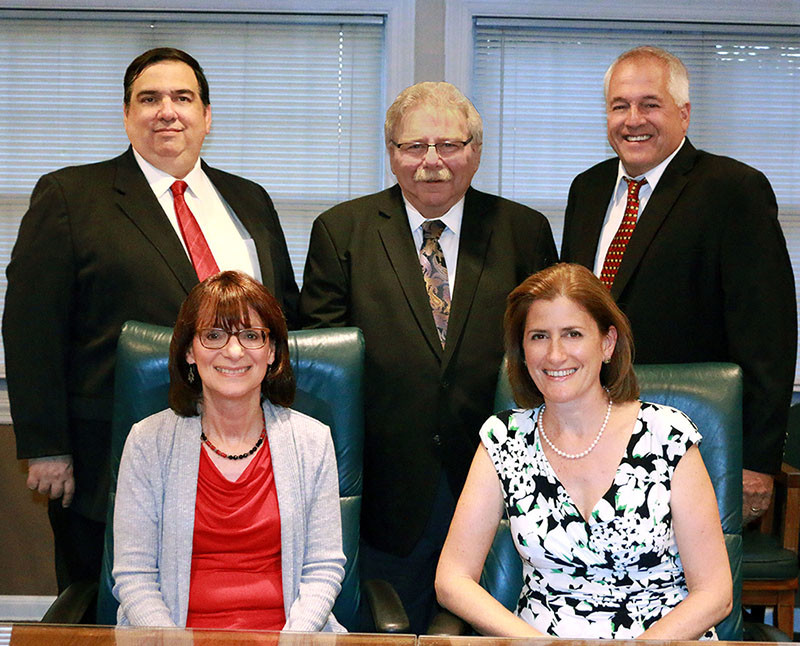RVC school board unanimously approves 2017-18 budget
The Rockville Centre Board of Education unanimously approved the 2017-18 school budget during its meeting on April 20, the last day it could have been changed. The spending plan, totaling just over $112.7 million, is about $3.2 million larger than the current budget.
The proposed tax levy, the total amount the district will collect from village residents and businesses, is $92.5 million, $685,000 more than this year’s budget. The tax levy limit is .75 percent, which is under the tax cap.
According to Assistant Superintendent Rob Bartels, the budget rose by 2.92 percent because of increases in revenues, contractual salaries, the retirement system, health insurance and debt services. State aid will be almost $1.7 million, an increase of about 16 percent, due to the building aid that the district will be receiving in the form of bond expenses.
South Side High School underwent a major facelift over the course of 3½ years, which was funded by $30 million of a $45 million bond that residents approved in March 2013. The bond also financed an expansion of Watson Elementary School as well as upgrades and renovations around the district, including the installation of air conditioning in every classroom.
District projects are approved by the state, and the state reimburses a percentage of the funds for those projects.
“We can only file for that aid once those projects are completed,” Bartels said. “We’ve been doing that this year, so we’ll be getting all of that aid next year.”
The public will get to vote on the budget on May 16. There will be a formal budget hearing at South Side High School on May 3.
According to the Nassau County Department of Assessment, the average home in Rockville Centre for the 2017-18 school year is tentatively valued at $448,400. The projected tax increase is estimated to be about $90, based on the information currently available from the county assessor’s office.
There are several factors and variables that contribute to the changes in how much a homeowner pays in taxes each year. These include changes to the assessed value, tax levy, adjusted base proportion and STAR exemptions.
Instructional salaries take up more than half of the budget at almost $68 million, and employee benefits reached just over $25 million.
One surprise addition to the budget was a relatively small item, $20,000 earmarked for the high school and middle school robotics programs. In recent months, several student robotics enthusiasts have addressed the school board, expressing concern over the lack of funding for the program at the high school. Johnson said at the Jan. 18 meeting that Board of Education trustees would examine the budget and try to find money to support the program. The middle school program made its second straight appearance at the world championships in Kentucky this week.
“While the numbers matter, I think to the homeowner in this community, what matters more than that is the fact that the children who attend our schools are still going to be able to experience what they did in prior years,” said Superintendent Dr. William Johnson.
Overall, the residents were pleased with the budget.
“I think it’s a sound budget,” said Tara Hackett, a mother of two boys. “I thought that their revenue was very strong this year. I think the taxpayers will be happy with it. For what we’re getting with that increase, I think we have something to show for it.”
Liz Strack, an 18-year resident and mother of three who still has a teenage daughter at the middle school, was also satisified with the budget, despite wanting to see a more detailed list of expenditures in the future.
“I’ve always voted for the budget,” said Liz Strack, an 18-year village resident. “One of the reasons we moved here was for the schools and all of my taxes have gone up a lot. So has my house price. It remains a desierable place because of the schools and the taxes makes that possible. I also trust people like Dr. Johnson. I have great trust in him.”
If the budget fails, the school board can decide to put up the same or an adjusted budget for a public re-vote in June. If the re-vote does not pass, the district would be forced to adopt a contingency budget with a 0 percent tax increase and reduce the budget by $685,000. School districts that do not receive budget approval are required to develop contingent budgets that strictly limit the types of activities, programs, services and purchases that may be funded.






